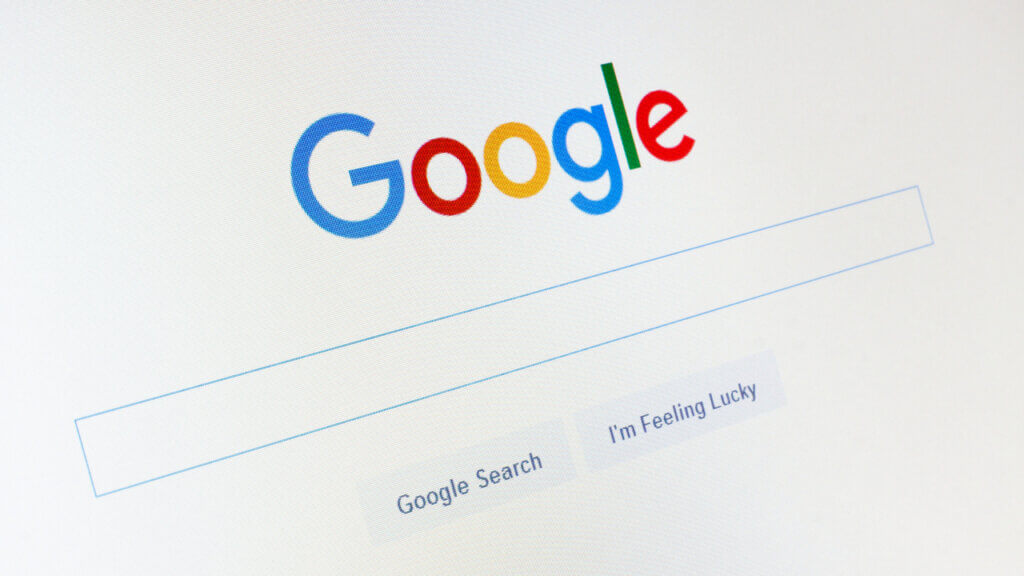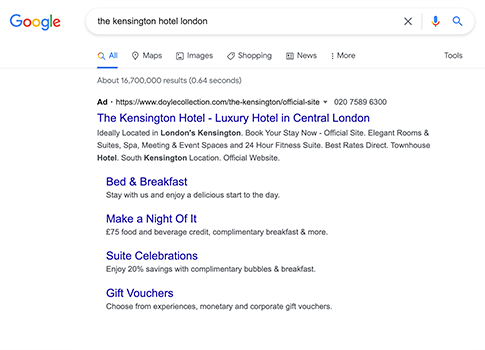
Apparently there are 5.6 Billion searches on Google each and every day. However, the most important search is when someone carefully types in your brand name and hits return.
NB: This is an article from 80 Days
That, right there, is an opportunity. But just how do you ‘own your search results’ in 2022 and control as much as humanly possible of what appears on your brand’s SERP (Search Engine Results Page)?
Subscribe to our weekly newsletter and stay up to date
In this article we’ll breakdown a typical SERP into its core components; Paid, Organic, Local and Metasearch. We’ll provide helpful tips on how to optimise them all and how to measure the success of all your efforts.
METASEARCH
Metasearch typically converts higher than any other channel for our clients, consistently above 2%. It’s there, ready and waiting, when demand for travel spikes and is a fantastic driver of incremental bookings.
So how do you ensure your rates appear alongside those of the OTAs and competitors? It’s actually pretty straightforward. For the sake of your sanity (and avoiding having to manage multiple channels independently) we would recommend working with a provider that offers a single connection to multiple metasearch channels. Conveniently and unsurprisingly, we do.
Give careful consideration to the provider you entrust with this valuable channel. Take care to avoid the ‘setup, switch on and go‘ brigade who promise fantastic results based solely around automation. While automation can help with some of the more menial tasks, we’re advocates of retaining some human involvement when investing significant marketing spend. It’s important for hotels to feed directly into their metasearch strategy for optimal results.
Callouts and competitive rates will help to make your listing stand out alongside OTAs and you should always make sure that your most competitive rates are available to book on metasearch. It probably goes without saying (but we’ll say it anyway) that rate parity is quite (read: VERY) important to improve both the visibility of your rates, Click Through Rates (CTR) and overall conversion of those who are in-market for your property.
Don’t forget to invest time in working on the user experience of your site and booking engine so that you give yourself every feasible chance of converting metasearch leads into metasearch bookings – attracting the click is just the first step.
Don’t forget to opt in for organic metasearch listings too. This is really a no brainer as you don’t need to have a paid metasearch connection to run these.
Finally, remember that metasearch generally forms part of much wider marketing plan. Take the time to ensure your metasearch budgets, targeting and targets are aligned with other campaigns to create a high performance holistic strategy.
PAID SEARCH

Own the space above organic search results by running Pay Per Click (PPC) advertising on your brand as well as non-branded keywords, e.g. “5-star hotels in Kensington”
OK, let’s start by addressing the elephant in the room. Yes, you should still bid on your brand, even if your website ranks organically in position 1. Here’s why:
The ‘Billboard Effect’ Study
A study conducted by 80 DAYS in September 2021 highlighted that while PPC ‘cannibalises’ approximately one third of organic searches, i.e. 1 in 3 clicks on a PPC ad would have come to your website anyway if the search ad had not appeared, by running brand ads in addition to ranking 1st you’ll still receive a net increase of traffic to your brand site of around 20%. Given that branded traffic generally converts at a high rate, that’s a very valuable 20%.
Beyond an incremental gain in traffic, bidding on your brand ensures that OTAs, competitors and opportune affiliates or third parties can’t capitalise on your hard-fought brand awareness, pinching a conversion at the very end of a guest’s purchasing decision.
Brand and non-brand PPC also afford you complete control over your messaging. Organic Page Titles and Meta Descriptions can be a bit more rigid, making seasonal or campaign-related messaging more of a challenge. With paid advertising, you can include the copy and keywords that most effectively convey your brand and positioning, capturing a user’s attention and driving them to your website.
Additional extensions and sitelinks within a paid advert help you further promote special offers and highlight your location to users – two key factors that help convince a user that you are deserving of their click. They also help use valuable ‘space’ within a SERP, meaning that OTAs and other sites are pushed further down the page.
Automation can really help to scale your campaigns quickly and efficiently. Making use of Responsive Search and Display Ads, Dynamic Search Campaigns and Performance Max campaigns can be very effective at expanding your campaign’s reach and return, but should always be monitored closely to ensure your budget is being spent most effectively.
Finally, while it can be tempting to dive right into paid advertising, we’d always recommend speaking to an agency first. Well of course we would, right? It truly does make sense though. Bluntly, mistakes can be very costly as poorly setup campaigns can spend quickly and return meanly. Agencies have the advantage of a breadth of experience, working across multiple accounts, channels and tools with a best practice approach. Also, our partnerships with Google and Bing afford us beta access to shiny new technologies too, which helps our clients keep pace with the OTA behemoths and their ever increasing budgets.




